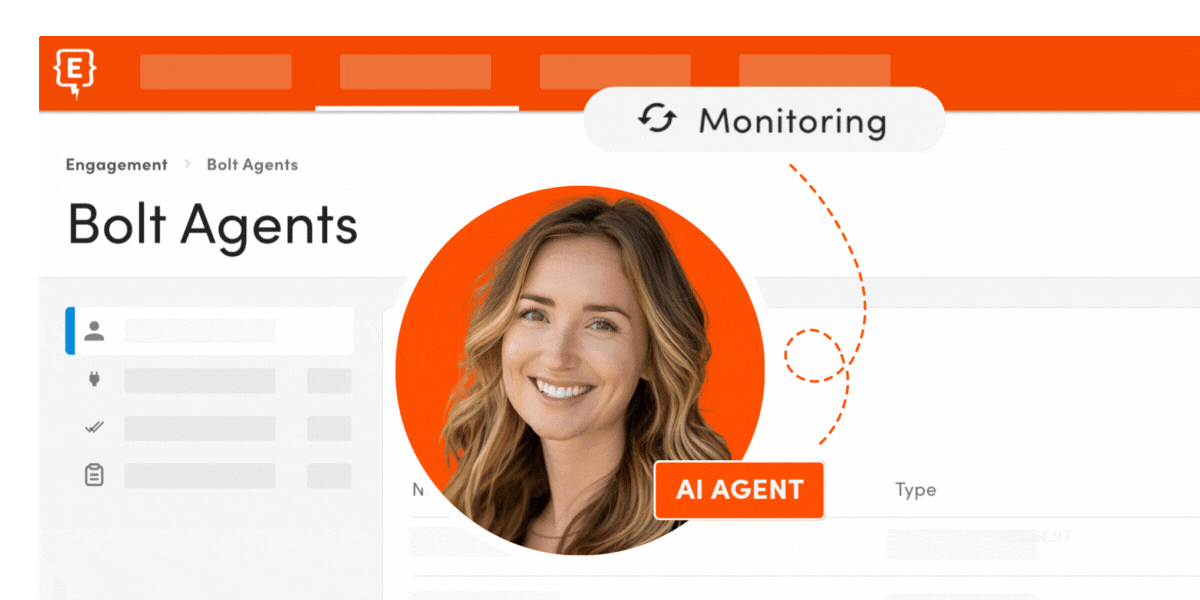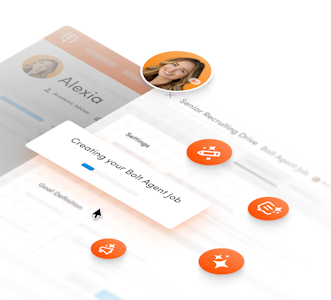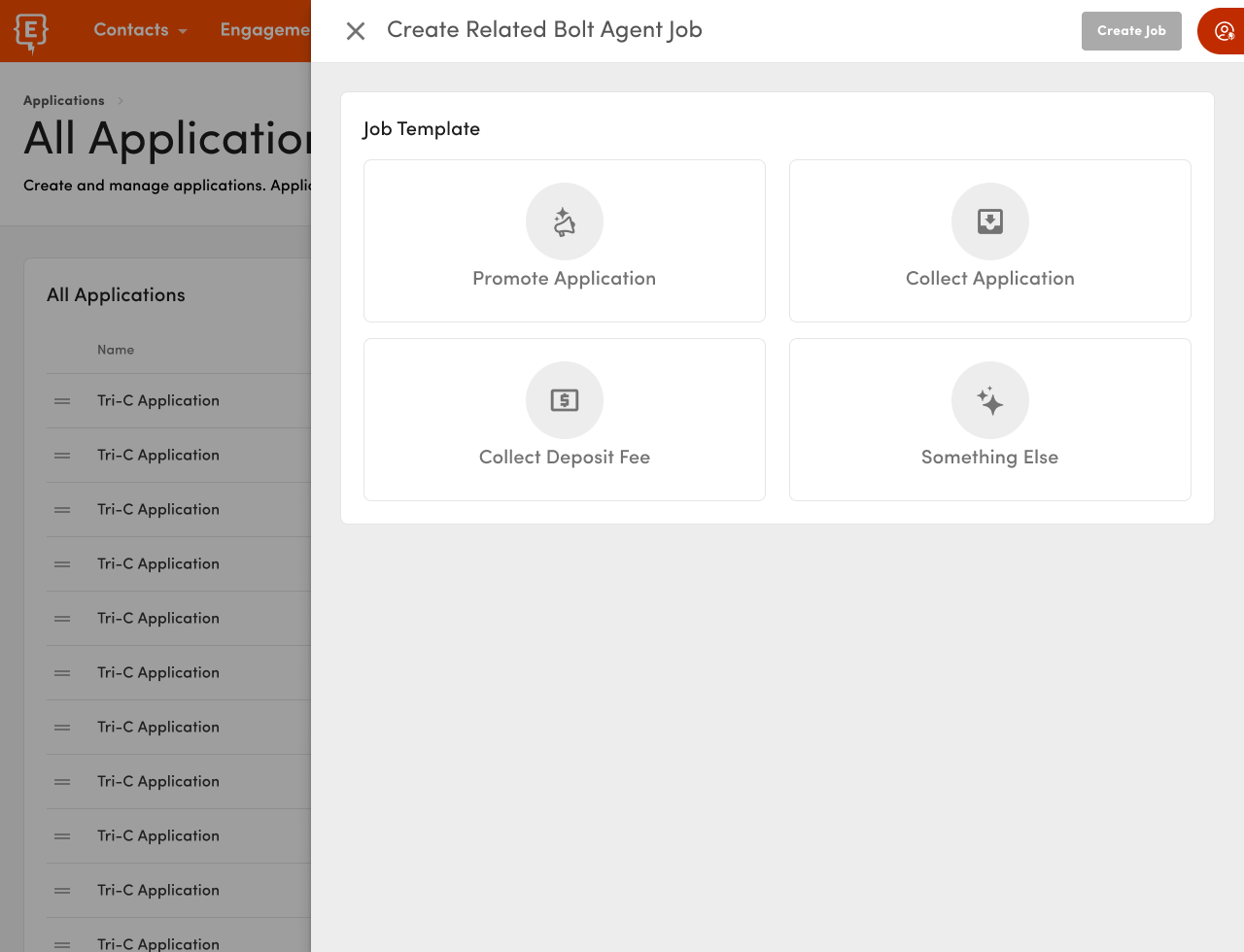Discover Key Benefits of CRM in Higher Education
by Brandon Hurter · Updated Nov 28, 2024

For university admissions programs, the game has changed. As more students commit to schools virtually, higher education institutions have fewer opportunities to engage with them in person. The benefits of CRM in higher education are clear: an effective CRM system can streamline your digital student engagement strategy, making it easier to connect with prospective students and personalize interactions. If you want your recruitment strategy to evolve and succeed, implementing a CRM in higher education is key to fostering those essential connections.
Luckily, the right CRM software can redefine how university admissions takes student recruitment to new heights while keeping actively enrolled students engaged. In this post, we’ll share some of the biggest benefits a CRM can bring to student engagement in higher education.

What is a CRM in University Admissions?
A customer relationship management (CRM) system is a powerful tool that helps universities manage every step of the student journey. For admissions, this includes tracking applications, managing student data, customizing outreach, and leveraging marketing automation to engage students across digital channels.
Key Benefits of CRM for Higher Education Institutions
To succeed, you need tools that help you stand out and streamline your processes. Here are the top benefits of CRM in higher education:
Increase Admissions and Enrollment Efficiency
Automate email follow-ups, application status updates, and event reminders, freeing up your team to connect with students. With automated workflows, the application process becomes smoother for students, helping admissions teams meet enrollment goals faster.
Improve Student Engagement and Retention Rates
CRMs help build student connections by personalizing their journey from the first point of contact. Automated engagement and tailored support keep students engaged and help improve retention rates, creating a seamless transition from prospective student to alumni.
Drive Recruitment with Data-Driven Marketing Campaigns
CRMs support data-driven campaigns targeting specific demographics and behaviors. This strategic approach improves recruitment by delivering personalized messaging to students at the right time, increasing engagement and conversion.
Centralize and Secure Student Information for Easy Access
A CRM consolidates student data into a single, secure platform accessible to authorized staff. This fosters collaboration across departments and keeps data secure, ensuring compliance with regulations like FERPA.
Gain Insightful Analytics to Inform Decision-Making
CRMs offer real-time data on key metrics, helping institutions refine their strategies based on what’s working. Analytics track the effectiveness of recruitment campaigns and support data-informed decisions that enhance student engagement.
Facilitate Collaboration Across University Departments
Admissions, marketing, and academic departments can all access shared data to support each student’s experience from application through graduation. A CRM enhances interdepartmental communication, creating a unified approach to student success.
Enhance Financial Aid and Scholarship Management
A CRM streamlines the financial aid process by matching eligible students to scholarships, tracking applications, and ensuring timely disbursement, improving the student experience with accessible, transparent financial support.
Streamline Internship and Job Placement Support
CRM systems extend beyond recruitment, supporting career services by tracking internships, job placements, and alumni engagement. This enables universities to showcase student outcomes to prospective applicants, enhancing the value of their programs.
How to Pick the Best CRM for Higher Education?
Choosing the right CRM requires evaluating several factors:
- Customization and Flexibility for admissions and student engagement processes
- Integration Capabilities with other systems, like SIS and LMS
- User-Friendly Interface to encourage adoption across departments
- Scalability to grow with your institution’s needs
- Vendor Support and Training to facilitate smooth implementation and usage
With a robust CRM system, universities can streamline recruitment, connect with more students, and provide a memorable student experience that continues beyond graduation.
Unlock the Full Potential of Your University with CRM
Great marketing strategies often depend on having the best data and the right tools. With a student engagement platform like Element451, you can ensure both of these factors are always at your fingertips, helping you meet your school’s admissions goals year after year.
A powerful student CRM makes it easy to connect with students at every stage of their journey and deliver personalized, automated messages that encourage them to take the next step. Element451 enables you to know exactly who you want to recruit, understand how you can help them succeed, and guide them toward enrollment.
Book your Element451 demo today to see how personalized student engagement can transform your full-funnel marketing efforts and enhance every stage of your student’s experience.
Frequently Asked Questions (FAQs):
How long does it take to implement a CRM system in a university?
Implementation typically takes a few weeks to several months, depending on the complexity of the platform and your institution's specific needs. Smaller institutions with straightforward setups may be ready within weeks, while larger universities requiring custom workflows and integrations might take longer. Working with a CRM provider that offers dedicated support can help streamline the process for a smooth transition.
Is CRM software secure enough to handle sensitive student information?
Yes, CRM providers prioritize data security with features like data encryption, access controls, and compliance with FERPA to ensure that sensitive student information remains protected.
Element451 has achieved SOC 2 Type II compliance, demonstrating our commitment to high standards of data security and privacy. Additionally, our partnership with AWS (Amazon Web Services) further enhances the reliability and security of our platform, ensuring your institution can trust that student data is in safe hands.
How much does CRM software for higher education typically cost?
Costs for CRM software in higher education can vary widely depending on factors like the range of features, number of users, and level of customization required. Many providers, including Element451, offer scalable pricing options to accommodate institutions of different sizes and budgets.
By choosing a CRM provider with adaptable pricing and feature packages, universities can maximize their return on investment, implementing solutions that evolve along with their recruitment and engagement needs.
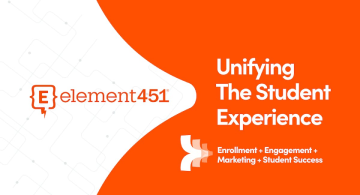
About Element451
Boost enrollment, improve engagement, and support students with an AI-driven CRM and agent platform built for higher ed. Element451 makes personalization scalable and success repeatable.
Categories
New Blog Posts
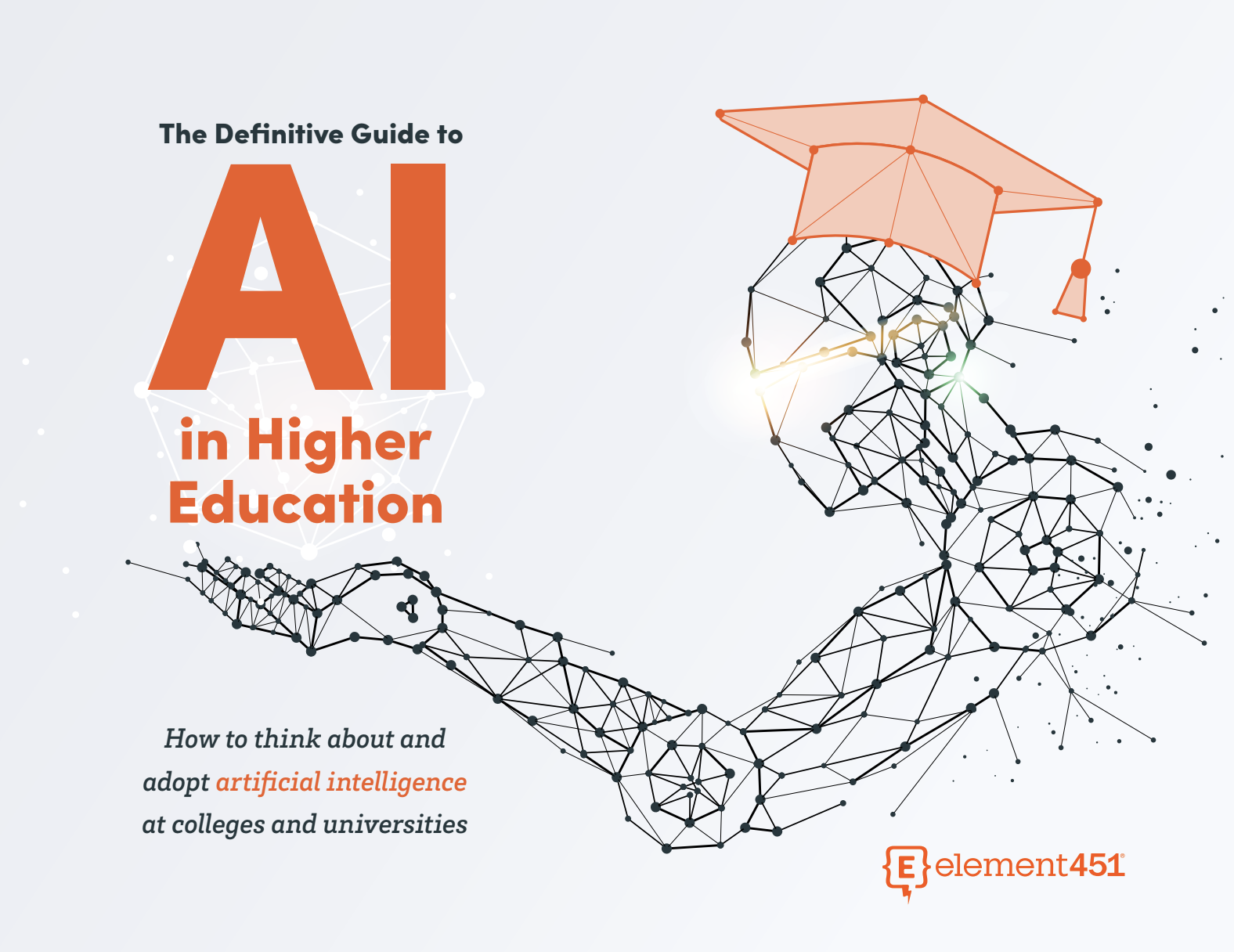
The Definitive Guide
AI in Higher Education
Bridge the gap between the latest tech advancements and your institution's success.
Useful Links
Related Articles

Talk With Us
Element451 is an AI-driven CRM and AI agent platform for higher education. Our friendly experts are here to help you explore how Element451 can improve outcomes for your school and students.
Get a Demo


